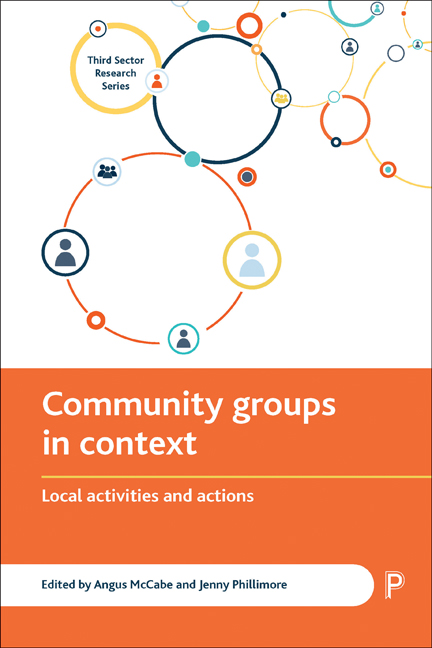Book contents
- Frontmatter
- Contents
- List of tables and figures
- Foreword
- Series editor’s foreword
- Acknowledgements
- Notes on contributors
- Introduction Why get below the radar? The importance of understanding community groups and activities
- Part One Scoping and mapping community actions and activities
- Part Two Community groups and activities in context
- Part Three Under-explored radars
- Part Four Thinking about voice, learning and emotion below the radar
- Index
Foreword
Published online by Cambridge University Press: 05 April 2022
- Frontmatter
- Contents
- List of tables and figures
- Foreword
- Series editor’s foreword
- Acknowledgements
- Notes on contributors
- Introduction Why get below the radar? The importance of understanding community groups and activities
- Part One Scoping and mapping community actions and activities
- Part Two Community groups and activities in context
- Part Three Under-explored radars
- Part Four Thinking about voice, learning and emotion below the radar
- Index
Summary
Voluntary action is embedded in the culture and communities of the UK. From helping neighbours and running play groups, to planting and nurturing local green spaces and helping our biggest national charities, voluntary work and voluntarism forms the web and weft of our society.
The Charity Commission records show that there are over 160,000 registered charities in the UK. But of course this is only part of the picture. Registered charities are dwarfed by the sheer volume of small informal groups whose members come together on a voluntary basis to carry out charitable activities day in and day out, every week of the year. Those informal groups are found in all communities and at all levels of society – they are certainly in every village and town, probably in every street and housing estate. They bring together old and young, men and women, those of every faith, colour and creed, in joint efforts to solve social problems and improve the lives of individuals, communities, themselves and others.
Despite being such an important part of our daily lives, these ‘below the radar’ groups were under-researched prior to the foundation of the Third Sector Research Centre (TSRC) in 2008. Over the ensuing years, the team has produced a set of research papers that help shine a light on the variety and richness of smaller community organisations.
The range and scope of these organisations is hinted at in an early paper from the TSRC, in which micro-organisations were painstakingly mapped, door to door: in just 11 English streets, an astonishing 58 micro-organisations were found to be alive and well, and the researchers concluded that this is likely to be a substantial underestimate of activity. In subsequent papers, TSRC looked both wide – for example, at the impact of austerity on below the radar groups – and deep, investigating less well understood corners of the voluntary sector such as those of the Gypsy, Roma and Traveller communities.
This book sets out a body of evidence about this vital aspect of our society and culture. It is a work to be welcomed by academics, community workers, sociologists, policymakers and all those with an interest in the wellbeing of communities in the UK today.
- Type
- Chapter
- Information
- Community Groups in ContextLocal Activities and Actions, pp. viPublisher: Bristol University PressPrint publication year: 2017

